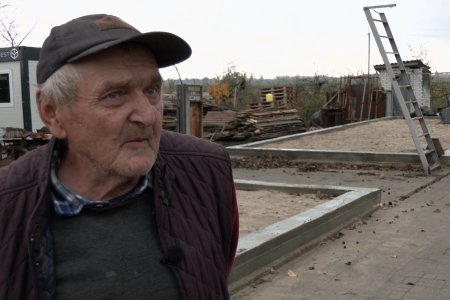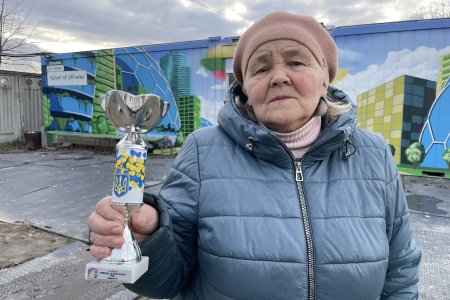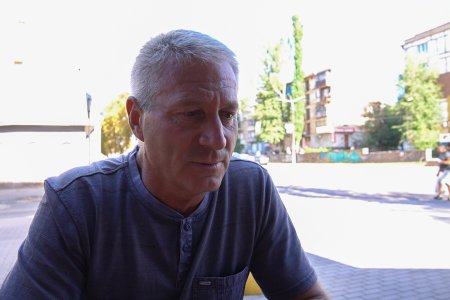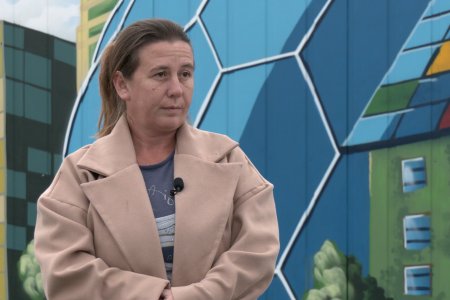I just went outside to the toilet. I went out, on the right side — hop! The Russian pointed the machine gun at me. I said: “I got it.” Where did they come from? I looked, and there was a lot of equipment there. They set them up for repairs and protected themselves. So, the Russian stood with a machine gun. In such cases, it is better not to make unnecessary movements. I served in the army. I knew that I needed to remain calm. I backed off. What can you do if they have the power... Then, they rushed to Bilohorodka and Motyzhyn. They tore down the fence and left.
An infantry fighting vehicles drove, and eleven men were sitting in each with brand-new machine guns. All in uniform, narrow-eyed Buryats. One with a tank machine gun shot right away. At the entrance to the village, he immediately started shooting.
And it hit hard! “Doo-doo-doo.” He did it so that everyone would hide. Their columns were of BMPs and tanks. There were also BMPs with red crosses on the back to collect the wounded. Such were their columns. They immediately organized a checkpoint at the 51st kilometer and set up another in Motyzhyn. [Our] unfortunate people were coming. Just imagine columns of hundreds of cars with people who wanted to leave, but the Russians did not let them. Nobody let these people go anywhere. They could not leave either Bucha or Irpin. Such was the picture.
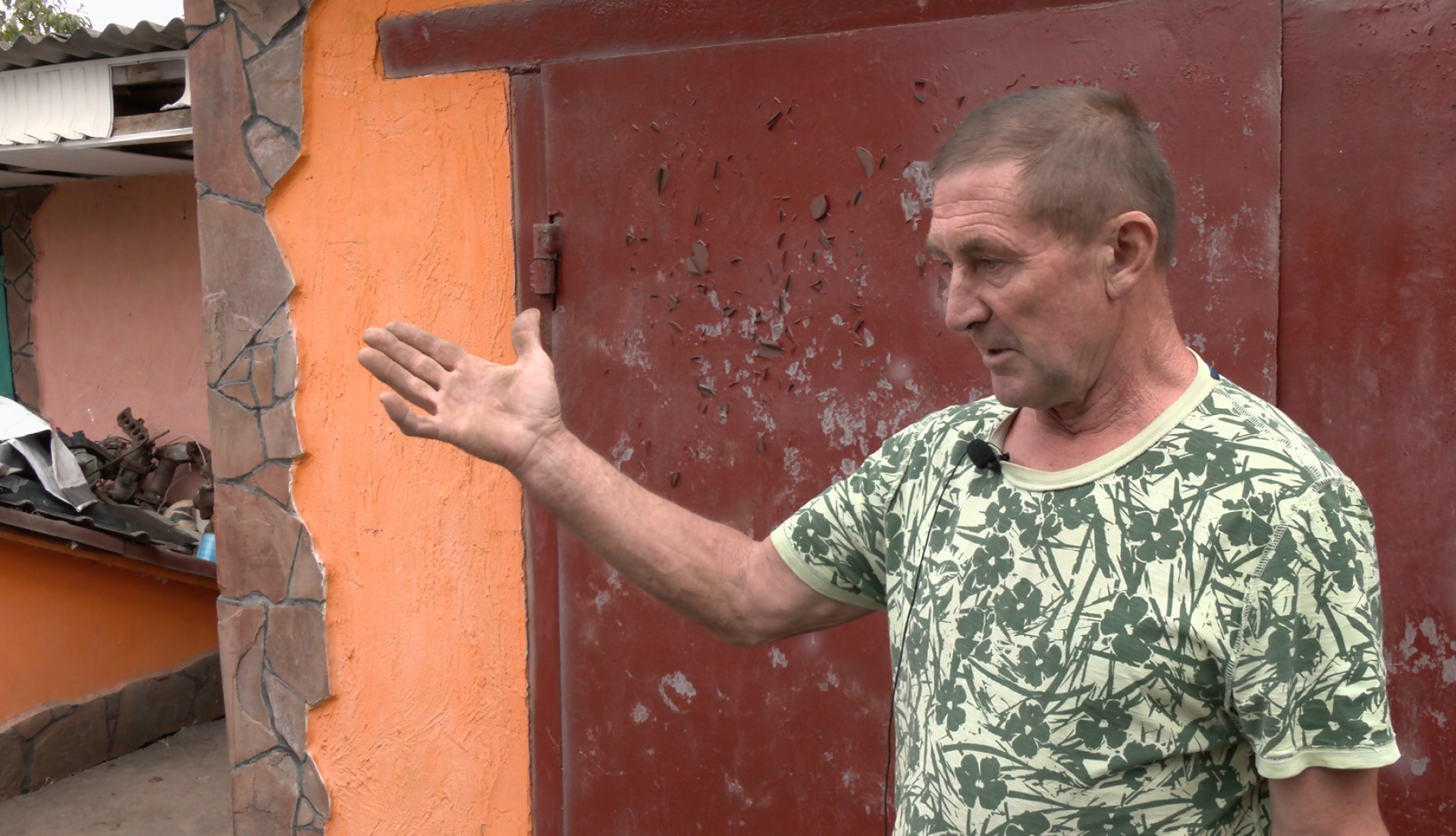
I’ll tell you in detail what happened. There was a terrible massacre in the Kalinivka area; our 95th brigade bombed them. Every day, at eight in the morning, like clockwork, an infantry fighting vehicle was driving, eleven men were sitting on it, a car to collect bodies with a red cross, and an infantry fighting vehicle in the back. In the area of Makarov and Borodianka, there was a constant massacre. And this is every day, like Our Father prayer. At the end of our village, near the houses, there was a base. They cleverly installed [the equipment].
They placed a tank near the houses where people lived so that ours wouldn’t shoot. Do you understand what they did? They hid their equipment. The village was patrolled. But they were afraid and never entered the yard. They only walked along the fences.
They were all short. The eyes are narrow. I have a ritual store here on the highway, and that’s where they caught me. They organized a checkpoint, placed machine guns, and waited there. They decided to profit from the store and tore out the blinds, finding ritual wreaths. And no one took it. I said: “Take it! Take it, please!” And there, in this building, on the second floor, they killed my nephew, born in 1985. I can confirm this. Verhun Serhii Volodymyrovych and Roman Zhurbenko born in 90. They were killed with tied hands. Our Serhii was identified in Fastov, and he was shot in the head with a machine gun. What was his fault? He wasn’t even married yet. He was identified by his right leg in Fastov. And the second, with his hands tied, was buried in a mass grave in Brusylov. I saw the photographs myself.
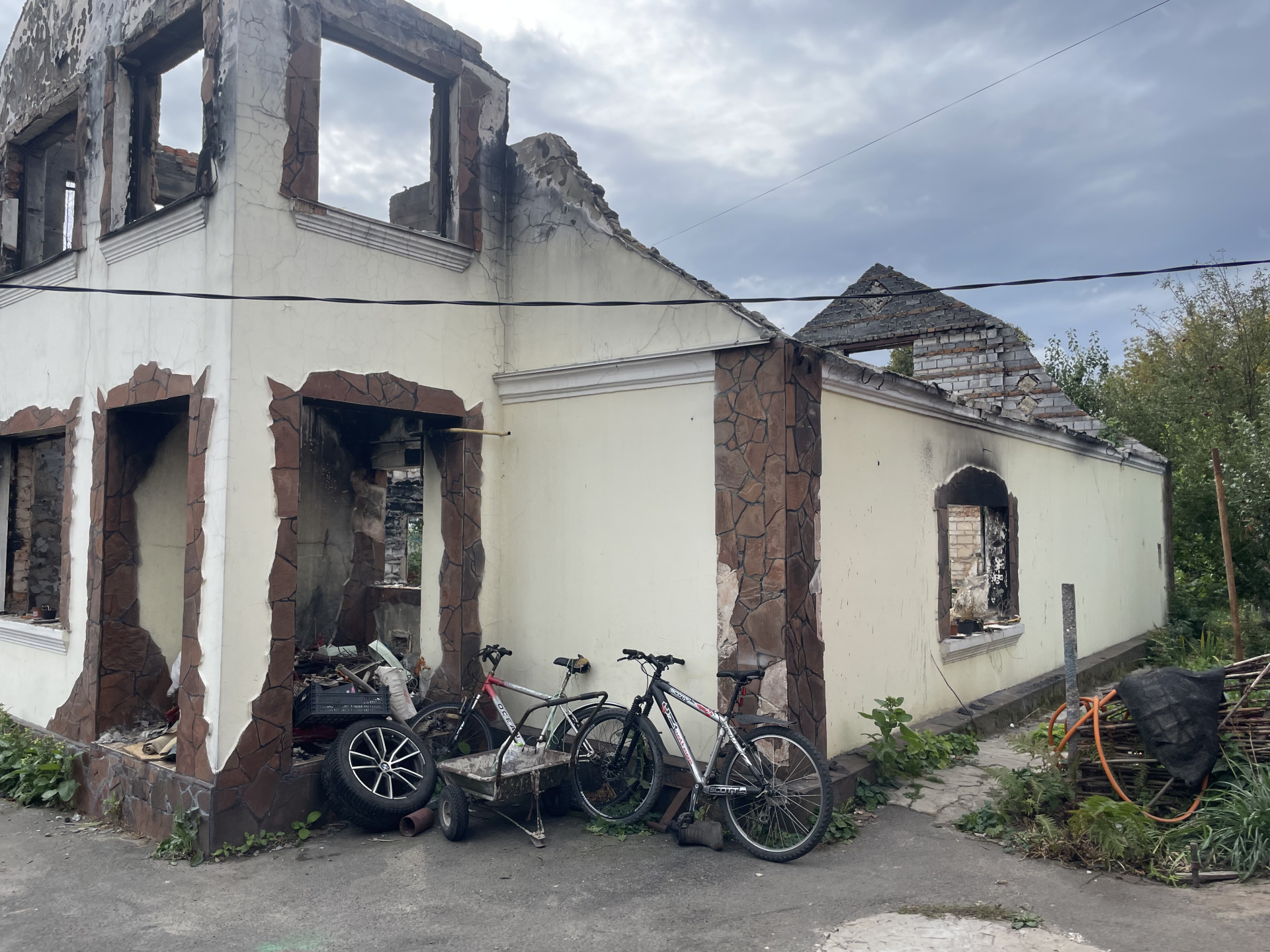
The Russians had marks everywhere, and all corners were painted yellow. This is how they marked the territory for the different units that visited. To understand where and how to go. You won’t shout to everyone on the radio. At night, they walked in columns without light; they had night vision devices. They patrolled the village and robbed shops. People saw it all. We have a pharmacy and a store here; I was on the second floor and could see everything. On the 28th, when our 98th brigade knocked them out, the people couldn’t stand it and started to leave. And where to? Straight to Pashkovka, and there, the fields were mined. They might have survived if they had been staying [here]. And so, Valera Fesenko, from Zavodskaya Street, had his car hit by a mine, and there he died in vain.
People were sitting without a piece of bread; everyone was afraid to get near here.
Once, the Russians dragged two infantry fighting vehicles on a cable — broken T-72 tanks, and the left caterpillar fell off. There was shouting... It was terrible! They went crazy, unhooked the cables, and fired from the tank into the building. The concrete wall was torn apart. And that’s it — they left. And then our [people] came running: some took batteries, some carried diesel fuel because there was nothing to heat with. I said: “Listen! Let it remain for our military. Don’t take all this!” But not even half an hour had passed when I heard the roar of equipment flying from Motyzhin. The Russians arrived and tore their batteries out of the car. They throw some kind of [thing] like a washer, and it all burst into flames. All the equipment burned down. And they left.
And then I thought, my nephews went missing; I needed to see where they went. Their parents left, and somehow, the children were left behind. Well, not children: born in 85 and 90. I got on my bike and rode quietly. I thought I would look at my store, check what’s going on, and at the same time check the guys’ house. I didn’t even have time to get to the number 14 when katsap [ethnic slur for Russian] appeared suddenly! He started shooting from the machine “tra-ta-ta”. I fell sharply, and fortunately, there was sand. But I couldn’t get into any house. I lay there almost until dark. All the people were afraid, and everything was closed. Even the most seedy gates were locked. I threw the bike, laid down, and stayed near the sand. What could I do? If I stood up, they would have killed me.
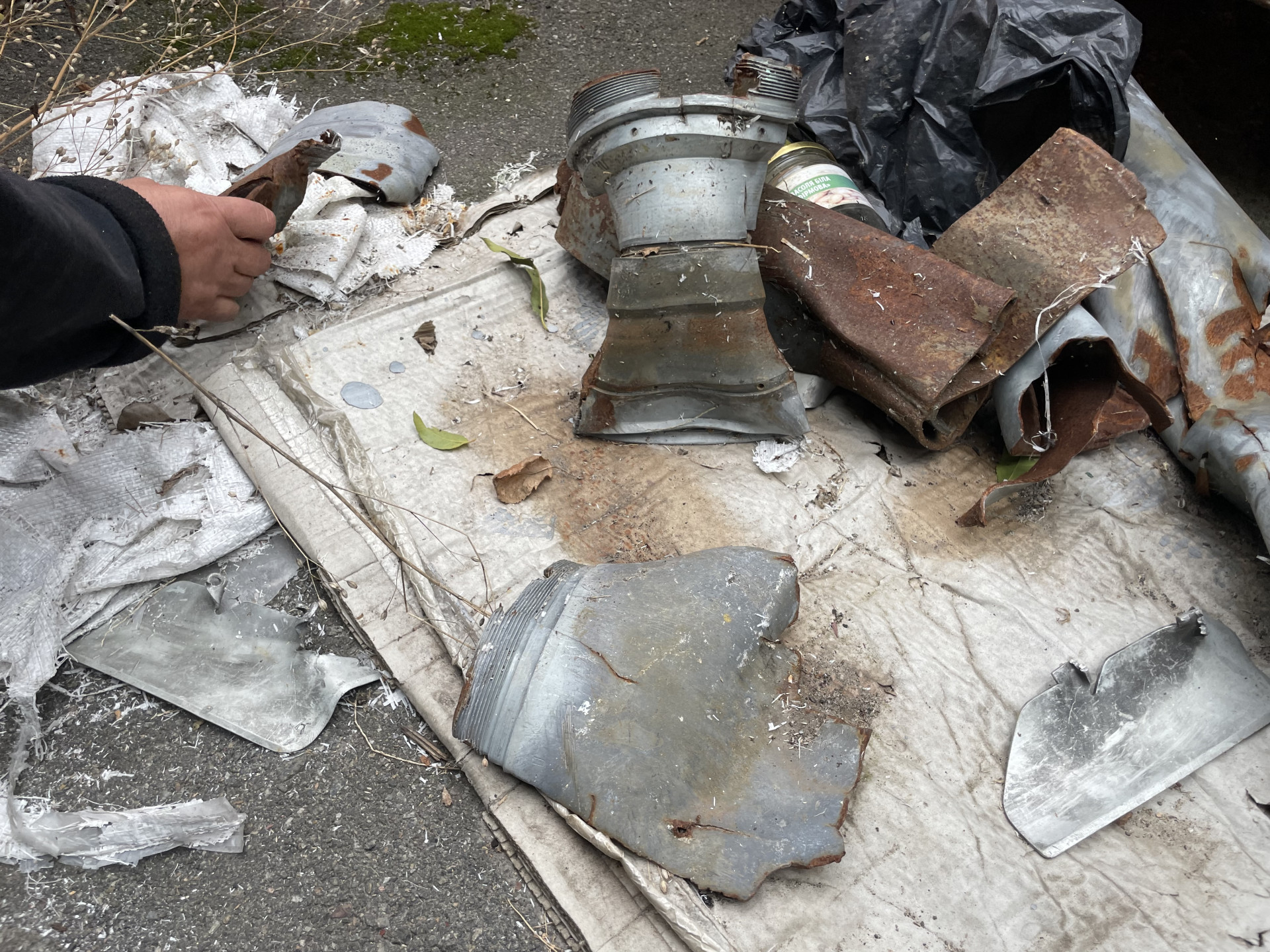
When it hit the house, I was in the summer kitchen. Suddenly — a sharp blow. Two strikes. I’m telling you the Grads [flew] from there and immediately pierced the house right through... How did I stay [alive]? It flew over my head, literally 20 centimeters away. I rushed out and couldn’t see anything. It was dark, and everything was on fire. Everything happened instantly, in a second… You see, there is a letter “G” here. This is debris from the Grad. Here is its number, and here is the second one. Two different ones, you see. Here is a wing from one, and here is the other. All this debris caught fire instantly. It was hot here. Next door, Mykola’s sawmill burned down, the whole building burned down, and [the flames] went there, to the village. And people started to run.
